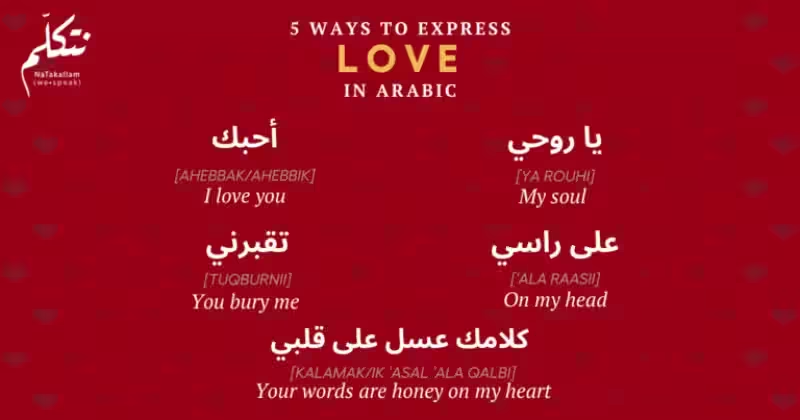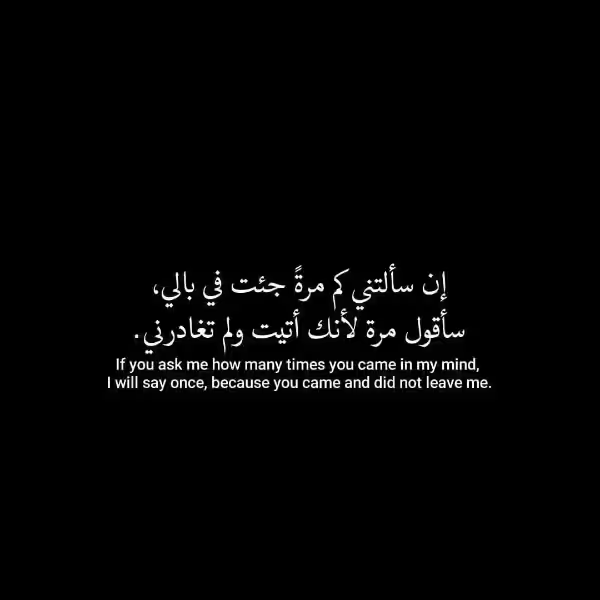
The Arabic language, rich in its history and culture, offers a vibrant tapestry of words to express love and affection. Beyond the familiar “Habibi,” a plethora of terms exist, each with its nuances and unique charm. Let’s delve into the world of Arabic endearments, starting with the most common: “My love” or “حبيبتي” (Habibti) for a female.
Beyond “Habibi”: A World of Arabic Endearments
While “Habibi” is widely recognized, it’s just the tip of the iceberg. Arabic offers a diverse range of terms to express love, each carrying a unique significance depending on the context and relationship. These terms often draw inspiration from poetry and romance, adding a layer of depth and beauty to the language of love.
“Hobbi”: A Heartfelt “My Love”
“Hobbi” (حبي), meaning “My love,” is another popular term derived from the word “Hob” (Love). It’s frequently used in songs and poetry, adding an element of romanticism to the expression of affection.
Imagine a lover whispering “Hobbi” to their beloved, their voice filled with tenderness and adoration. This term encapsulates the pure essence of love, a sentiment that resonates deeply in hearts across cultures.
“Habib/Habibat [q]albi”: Love of My Heart
“Habib/Habibat [q]albi” (حبيب/حبيبة قلبي), meaning “Love of my heart,” takes the expression of love a step further. The addition of “[q]albi” (قلبي), meaning “My heart,” signifies a deep and enduring affection, placing the beloved at the core of one’s being.
The pronunciation of “[q]albi” can vary depending on the dialect, adding another layer of complexity and regional flavor to the expression.
Other Terms of Endearment: A Kaleidoscope of Love
Arabic offers a wealth of terms to express love, each carrying its unique meaning and nuance. Here are some other common terms:
- Ya [q]albi (يا قلبي): “My heart,” a simple and affectionate term, commonly used in daily conversations.
- Hayati (حياتي): “My life,” expressing deep affection and the importance the beloved holds in one’s life.
- Ya ruHi (يا روحي): “My soul/soulmate,” highlighting a spiritual connection and shared destiny with the beloved.
- Ya ˁomri (يا عمري): “My lifetime,” emphasizing the enduring nature of love.
- ˁayuni/ˁeyuni (عيني/عيوني): “My eyes,” expressing love and admiration, often used to describe someone’s beauty.
- Ya sanadi (يا سندى): “My backbone,” a unique term signifying strength and support, mostly used in Lebanon.
- Ya [q]amar (يا قمر): “Moon/Moonflower,” a romantic and poetic term, comparing the beloved to the beauty of the moon.
- ˁazizi/ˁazizati (عزيزي/عزيزتي): “My treasure,” a formal and affectionate term, highlighting the beloved’s preciousness.
- Ya Helo/Helwa (يا حلو/حلوة): “Sweet one,” a common term of endearment in the Levant, expressing sweetness and fondness.
- Ya ˁasal (يا عسل): “Honey,” expressing sweetness and fondness, comparing the beloved to the sweetness of honey.
- Ya fo‘aadi (يا فؤادي): “My heart,” a more formal synonym of “Ya [q]albi,” often used in poetry, adding a touch of elegance to the expression.
These terms offer a glimpse into the richness of the Arabic language, its ability to express the full spectrum of human emotions, particularly love. Whether it’s a casual “Ya [q]albi” or a poetic “Ya ˁomri,” these expressions add depth and beauty to the language of the heart.
Embracing the Language of Love
Learning these terms of endearment is not just about memorizing words. It’s about understanding the cultural context and appreciating the beauty of the Arabic language. Whether you’re a learner or simply curious, exploring these expressions can open a window into a world of emotions, poetry, and cultural nuance.
If you’re interested in delving deeper into the world of Arabic language and culture, NaTakallam offers a platform for learning and practicing Arabic with native speakers. It’s a chance to experience the richness of the language firsthand, engaging in authentic conversations and learning about the cultural significance of these expressions.
Frequently Asked Questions
How do you say “my love” in Arabic for a female?
Habibti
What are some other terms of endearment in Arabic for a female?
Hobbi, Habibat [q]albi, Ya [q]albi, Hayati, Ya ruHi, Ya ˁomri, ˁayuni/ˁeyuni, Ya sanadi, Ya [q]amar, ˁazizati, Ya Helo/Helwa, Ya ˁasal, Ya fo‘aadi
- Habibi/Habibti: “My darling/beloved,” used for both romantic and platonic love.
- Hobbi: “My love,” a popular term from the word “Hob” (love).
- Habib/Habibat [q]albi: “Love of my heart,” pronounced differently depending on dialect.
- Ya [q]albi: “My heart,” a common term of endearment.
- Hayati: “My life,” expressing deep affection and importance.
- Ya ruHi: “My soul/soulmate,” highlighting a spiritual connection.
- Ya ˁomri: “My lifetime,” emphasizing enduring love.
- ˁayuni/ˁeyuni: “My eyes,” expressing love and admiration.
- Ya sanadi: “My backbone,” signifying strength and support (mainly Lebanon).
- Ya [q]amar: “Moon/Moonflower,” a romantic and poetic term.
- ˁazizi/ˁazizati: “My treasure,” a formal and affectionate term.
- Ya Helo/Helwa: “Sweet one,” common in the Levant.
- Ya ˁasal: “Honey,” expressing sweetness and fondness.
- Ya fo‘aadi: “My heart,” a formal synonym of “Ya [q]albi,” often used in poetry.
- Arabic language is rich in expressing love.
- These terms have different nuances and contexts.
- Explore the richness of Arabic language.
- NaTakallam is a resource for learning Arabic.
- “Habibi” is commonly known but not the only term of endearment.
- Learn about the cultural context of these terms.
- Use these phrases to express your love in Arabic.
- Improve your Arabic vocabulary.
- Appreciate the diversity of Arabic expressions.
- Connect with Arabic culture through language.
- Learn about Arabic poetry and literature.
- Discover the beauty of Arabic language.
- Expand your knowledge of Arabic terms of endearment.
- Learn about the origin and meaning of these terms.
- Understand the different dialects of Arabic.
- Enhance your understanding of Arab culture.
- Explore the history of Arabic language.
- Learn about the nuances of Arabic expressions.
- Practice using these terms in real-life situations.
- Increase your confidence in speaking Arabic.
- Build relationships with Arabic speakers.
- Discover the emotional depth of Arabic language.
- Appreciate the artistry of Arabic language.
- Gain a deeper appreciation for Arabic culture.
- Expand your cultural awareness.
- Enhance your communication skills.








